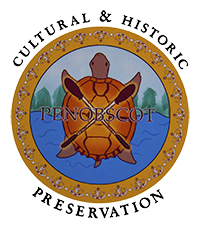Akələpemo
Aməskamən otene
He found a village
Kətəmαkinαkʷəsolətəwak alənαpak.
Pitiful they looked the people.
Eləmi-naləməwik αkələpemo wəkəlhamawαn nəpi
Away upriver Guards-Water held back water
Alənαpa nəpi
From the people
Nαnəkʷəč kʷaskʷi-katawəssəmolətəwak.
Some to death from thirst.
Mαlamte kəloskαpe tali-pečohse, wənαmihα wətalənαpema
Then Gluskabe was there coming, he saw his people.
Kətəmαkinαkʷəsolətəwak
Pitiful they looked
N=wətakʷečimolαn, “tαn ali-tepihle?” itamohətit, ‘kekα
He asked, “How is it this way?” They said, “Almost
Nənəkahtahokona αkələpemo
He has killed us Guards-Water,
Nəkʷaskʷi-katawəssəmolətipena, nəkəlhamαkonena nəpi.”
We are dying of thirst, he is holding back water.
N=wətəlohsαnα sαkəmαl αkələpemo eyit.
They [he] went to chief Guards-Water where he was.
Akələpemo cont.
N=wətihlαn, “kekʷ mehsi-kətəmαkihat kohsəssənawak?
He said, Why make pitiful our descendants?
N=αsohke nihkʷαp kotelətamen eli-kətəmαkihat kohsəssənawak
For this you’ll be sorry for making pitiful our descendants.
Nihkʷαp nəya nəmilαn nəpi, nə məsič kətetəpi-wəlαpetamənα.”
Now I give them water, and all will share good benefit.
Wənimiphαn nαkα wətəmαhikaniphαn
He grabbed him and broke his back.
Weči-nihkʷαp təmαhikanαt məsi kəpalαmak
Because now broken backed all bullfrogs
Mehč nətahtαmα wəkiselətamowən nəpi
Still not sharing water
Kəloskαpe wəwihkʷənəmən wətəmhikan nαkαsipi wətəmtəhαn
Gluscabe took an axe and cut it
Kči-apasi wikʷesk
Big tree yellow birch
Wəkawəhαn akələpeməwal n=eli kawihlαt
Injured on Guards Water when it fell
Wikʷesk αkələpeməwal kʷaskʷtəhαn
Yellow birch on Guard-Water killed.
Nə weči-kisi-tepihlk sipo pαnawαhpskewtəkʷ
Because of this River Penobscot
Nə məsi pskahtəkʷənal sipəwal nə mesi sαkətehtəkʷal kči-sipok
All branches, river, all tributaries into great river.
Wəči-kisi-təpihle kči-sipo
Because of this, great river.
Nə məsi alənαpak etoči-katawəssəmolətihətit
All the people so thirsty they were
Nə məsi wəčawpikətaholətin nə
All jumped in water, then
Nαnəkʷəč namehsihlαwələtəwak čəkʷalsewihlαwələtəwak
Some into fish, into frogs
Toləpayihlαwələtəwak
Into turtles
Wahkehsəwak ipi wətαwəsolətičik
That many only survived
Nihkʷap nə weči-mαčekihətit kətakik alənαpak
Now from this grew the other people
Nihkʷαp weči wətetakʷapihtamənα pαnawαhpskewtəkʷ
Now on they inhabit the length of the Penobscot River
Nə weči-nikʷαp-aliwisolətihətit
From this they are named
Nαnəkʷeč namehsak namehsihlαwələtihətit wətalənαpemənaka
Some fish people relatives
Nihkʷαp nə weči-wihkʷəmohətit eli-wisolətihətit ehkihkikit
Now from this they took their names all kinds
Namehsak nαkα toləpak
Fish and turtles.
Akələpemo
Aməskamən otene. Kətəmαkinαkʷəsolətəwak alənαpak. Eləmi-naləməwik αkələpemo wəkəlhamawαn nəpi alənαpa nəpi. Nαnəkʷəč kʷaskʷi-katawəssəmolətəwak. Mαlamte keloskαpəe tali-pečohse, wənαmihα wətalənαpema kətəmαkimαkʷəsolətəwak. N=wətakʷečimolαn, “tαn ali-tepihle?” itamohətit, “kekα nənəkkahtahokona αkələpemo, nəkʷaskʷi-katawəssəmolətipəna, nəkəlhamαkonena nəpi.” N=wətitamən kəloskαpe, “nəyač nəkishatawαn kəmiləkona nəpi.” N=wətelohsαnα sαkəmαl αkələpemo eyit. N=wətihlαn, kekʷ mehsi-kətəmαkihat kohsəssənawak n=αsohke nihkʷαp kotelətamən eli-kətəmαkihat kohsəssənawak. Nihkʷαp nəya nəmilαn nəpi, nə məsič kətetəpi-wəlαpetamənα.” Wənimiphαn nαkα wətəmαhikaniphαn. Weči-nihkʷαp-təmahikanαt məsi kəpalαmak
Mehč nətahtαmα wəkiselətamowən nəpi. Kəloskαpe wəwihkʷənəmən wətəmhikan nαkαsipi wətəmtəhαn kči-apasi wikʷesk, wəkawəhαn αkələpeməwal n=eli-kawihlαt. Wikʷesk αkələpeməwal kʷaskʷtəhαn. Nə weči-kisi-tepihle kči-sipo
Nəməsi alənαpak etoči-katawəssəmolətihətit, nə məsi wəčawpikətahoətinα nαnəkʷəč namesihlαwələtewak čəkʷalsəwihlαwələtəwak, toləpayihlαwətəwak, wakehsəwak ipi wətawəsolətičik. nihkʷap nə weči-mαčekihətit kətakik alənαpak. Nihkʷαp weči-wətetakʷapihtamənα pαnawαhpskewtəkʷ, nə weči-nihkʷαp-aliwisolətihətit. Nαəkʷəč namehsak namehsihlαwəltihətit wətalənαpemenaka.
Translation: He came to a village where people looked feeble. Up the river, a monster frog (akələpemo) held back the water from these Indians. Some even died on account of thirst for water. Then Gluscabe came there. He saw his people looking sickly. He asked the, “What is the trouble?” They told him, “Guards-Water has almost killed us all. He is making us die with thirst. He forbids us water.” Then Gluskabe said, “I will make him give you water.” Then they went with Gluskabe, their chief, to where Guards-Water is. Then he said to him, “Why do you enfeeble our grandchildren? Now you will be sorry for this, for enfeebling our grandchildren. Now, I shall give them the water, so that all will receive an equal share of the water. The benefit will be shared.” Then he grabbed him and broke his back. Hence all bull-frogs are broken-backed. Even then he did not give up the water. So Gluskabe took his axe and cut down a big tree, a yellow birch, cutting it so that when it fell down upon Guards-Water the yellow birch killed him. That is how the Penobscot River originated. The water flowed from him. All the branches of the tree became rivers. All emptied into the main river. From this came the big river. Now all the Indians were so thirsty, nearly dying, that they all jumped into the river. Some turned into fish, some turned into frogs, some turned into turtles. A few survived. Now, that’s why from them other Indians increased. Now, that’s why they inhabit the length of the Penobscot River. Thence now they took their names. Some took fishes’ names, since their departed relatives turned into fish. Now thence in this way they took their family names from all kinds of fish and turtles.

